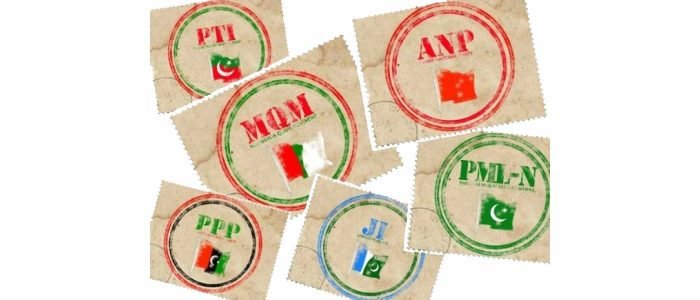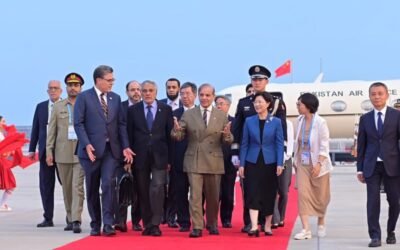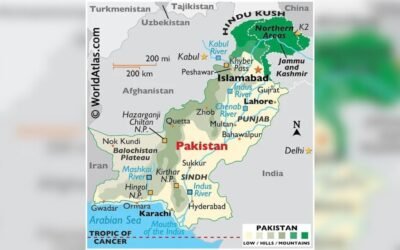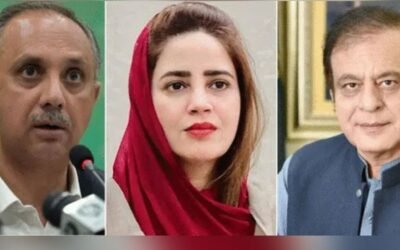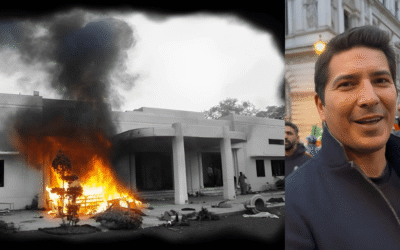Political parties play a crucial role in any democracy. Before elections, they release “manifestos,” which are their lists of promises. These documents inform voters of what the party intends to do if it gains power. Manifestos outline a party’s major plans for the country. They help people decide who to vote for and allow voters to check later if a party kept its promises.
In Pakistan, manifestos are very important documents. They serve as a contract between the party and the people. These documents address many national issues: fixing the economy, ensuring justice, improving government, and tackling environmental problems. However, there is often a big gap between what parties promise and what they deliver in power. This review will examine typical promises, identify the gaps, and assess their impact on voter trust.
What Do Parties Promise?
Pakistani political parties often make similar promises in their manifestos. These aim to solve the country’s most significant problems and attract many voters. They usually focus on the main challenges citizens face.
Common promises include:
- Improving the Economy: Almost every party promises to fix the economy. They discuss creating jobs, lowering prices (inflation), reducing national debt, and making Pakistan financially stronger. For example, the PML-N’s 2024 manifesto aimed for 6% economic growth over five years. They also often promise to raise the tax-to-GDP ratio. The PML-N aimed to increase this from 10.4% to 13.5% by 2029. They frequently talk about ending Pakistan’s need for IMF loans.
- Better Education: Education remains a top priority. Parties promise to invest more in schools and make education accessible for all. The PPP’s 2024 manifesto promised “Education for All”. In 2013, PTI aimed to increase education spending to 5% of GDP in five years. PML-N also wanted to reach UNESCO’s target of 4% of GDP by 2018. They promise better schools, teacher training, and free education for all children.
- Good Health Care: Providing free or affordable health care is common. The PPP’s 2024 manifesto talked about “free healthcare services for all citizens”. Parties promise to improve hospitals and ensure good medical care. Pakistan’s public spending on health is low, at only 1.4% of GDP in FY22.
- Fixing Governance: Promising to improve government and fight corruption is essential. Parties discuss strengthening parliament. They aim to grant more power to provinces (provincial autonomy) and establish local governments. Many manifestos emphasize police reform and a fair justice system.
- Social Justice and Welfare: This includes promises to help the poor, women, youth, and farmers. Parties vow to create jobs, increase minimum wages, expand social assistance programs (like the Benazir Income Support Programme), and provide affordable housing. The PPP pledged to build three million houses for the homeless.
- Energy and Climate Change: With power cuts common, parties promise to solve energy problems. They talk about building more power plants and using clean, renewable energy. The PML-N’s 2024 manifesto aimed to increase electricity production by 15,000 MW, partly from green sources. Parties now also include plans for climate change.
Promises vs. Reality: The Big Gap
While manifestos look good on paper, their promises are often hard to keep. There’s a history of promises not being fully met in Pakistan. This usually leads to public disappointment.
- Structural Promises vs. Parliamentary Reality: Beyond policy goals, some manifestos propose fundamental structural shifts. For example, the PTI’s 2024 manifesto suggested direct elections for the Prime Minister and 50% of Senators, moving toward a presidential system. This promise sparked debate, with analyst Moeed Pirzada tweeting: “PTI Manifesto promises to provide direct elections to elect future Prime Ministers of Pakistan? Sounds like a Presidential system?” Such ambitious constitutional changes are difficult to achieve within Pakistan’s entrenched parliamentary system, as they require a broad consensus that is often absent in a polarized environment.
PTI Manifesto promises to provide direct elections to elect future Prime Ministers of Pakistan? Sounds like Presidential system? Could an American style Presidential System work for Pakistan? A serious discussion with Barrister Ehtesham Amir ud Din & Hafeez Chaudhry of Vision…
— Moeed Pirzada (@MoeedNj) January 29, 2024
- Unrealistic Promises: Many promises are often too ambitious to fulfill. Candidates make claims without explaining how they will fund them or provide clear plans. For example, promising free healthcare without a financial strategy is common.
- Lack of Clear Plans: Manifestos often act more like wish lists than proper roadmaps. They lack detailed steps, timelines, and cost breakdowns. This makes it hard to put plans into practice. Over 70% of ministries even lack a proper policy document.
- Coalition Governments: In Pakistan, one party rarely wins enough seats on its own. This often results in coalition governments. Parties have to compromise on some plans and agree with others. This makes it difficult to keep the original promises.
- Short-Term Focus: Once in power, many politicians focus on quick, visible projects (3-4 years) in their local areas. They might prioritize roads or local jobs, rather than big national plans. This is often done to show quick results and win the next election easily.
- Economic Limits: Pakistan often faces serious money problems, high national debt, and low tax income. Its tax-to-GDP ratio is around 10.3%, much lower than South Asia’s average of over 19%. This makes it very hard to fund big promises without foreign loans. Pakistan’s total debt and liabilities reached 91.1% of GDP in FY2023.
- Governance Issues: Weak government systems, corruption, and a lack of real power for local governments make it difficult to fulfill promises. Parties often pledge to empower local authorities but then fail to grant them full authority or funding. As a result, cash and decisions do not reach the regional level.
Examples of Promises vs. Reality
- Education Spending: Parties promised to increase education spending to 4-5% of GDP. But Pakistan spent only 1.7% of its GDP on education in FY22.
- Tax Reforms: Parties often ignore fundamental tax reforms in their manifestos. This is to avoid unpopular decisions. Punjab could collect Rs. 55-75 billion per year in agricultural income tax, but gets less than Rs. 3 billion.
- PTI’s Performance: A study compared PTI’s government in KP and PML-N’s in Punjab from 2013 to 2017. PTI enacted more laws related to its manifesto promises in KP than PML-N did in Punjab. PTI fulfilled about two-thirds of its promises through legislation, whereas PML-N fulfilled about one-third. However, PTI also failed to pass laws on issues like tax reforms and criminal justice despite making big promises.
Do Voters Care About Manifestos?
In many strong democracies, manifestos help voters make informed decisions. They serve as a way to evaluate how effectively a party performs. However, in Pakistan, many voters do not have a full understanding of what manifestos are. Other factors often influence voters:
- Leader’s Appeal: A popular leader can draw big crowds to rallies (Jalsas), where grand promises are made. These events can cost a lot; the 2018 election Jalsas cost over 440 billion rupees. The leader’s image often matters more than detailed plans.
- Local Issues: Many voters care more about minor local issues, like street repairs or electricity, than big national policy plans.
- Family or Clan Ties: In some areas, family or clan loyalty (biradri) plays a significant role in how people vote.
- Media Coverage: News media, especially TV and social media, play a significant role in shaping what voters think.
Most parties know that many voters don’t read the full manifesto. So they often make vague or unrealistic promises just to boost their popularity. They might focus on catchy slogans instead of detailed plans.
The Way Forward: Making Promises Count
For Pakistan’s democracy to grow stronger, political parties need to take their manifestos more seriously.
- Realistic and Detailed Plans: Manifestos should include clear, feasible plans with costs and timelines. They must demonstrate how promises will be fulfilled, not just what is promised. This requires expert assistance and thorough analysis.
- Public Debates: Parties should participate in public debates about their manifestos. This would help voters better understand the plans and hold leaders accountable. Currently, such debates are infrequent. Media and public groups can also assist by closely examining manifestos.
- Internal Party Democracy: Parties need to practice democracy within their ranks. This means holding regular internal elections. This can make leaders more accountable to their party’s vision.
- Empower Local Government: Parties must truly give power and money to local governments. This is key for basic services to reach people at the grassroots level.
- Long-Term Vision: Governments should focus on long-term policy making, not just short-term projects that win votes. This requires thinking beyond a single election.
- Accountability: There should be a simple way to verify if parties are fulfilling their promises. Citizens and the media need to hold them accountable for their pledges.
Political manifestos are more than just election documents; they serve as contracts with the people. For Pakistan to progress, these promises need to be transformed into actual actions, grounded in trust and a commitment to serve the public.

